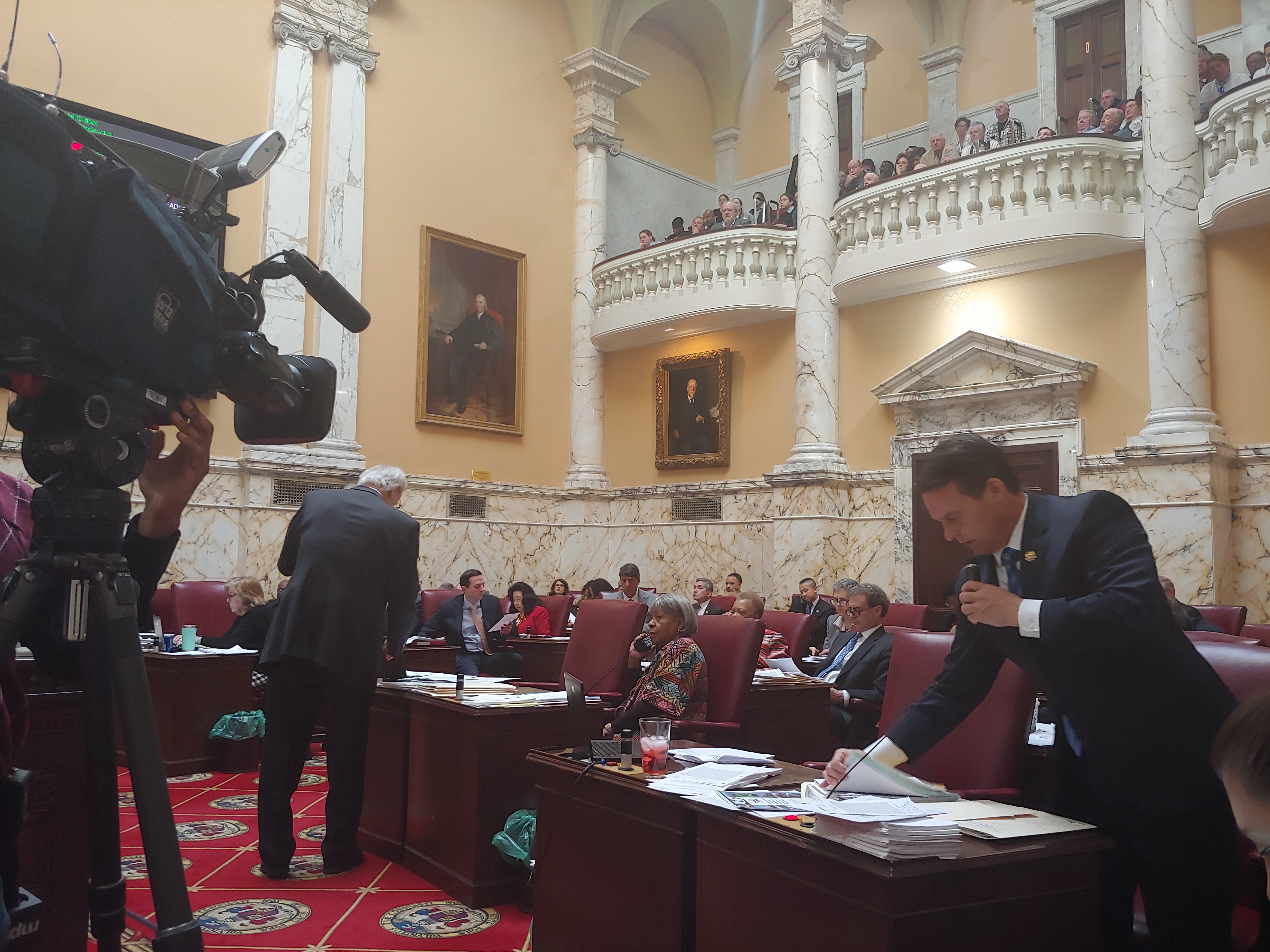ANNAPOLIS, Maryland — Students in Maryland public schools who fail required vision screenings and do not receive recommended services would be provided free eye examinations and eyeglasses by a new Maryland Department of Health program, under legislation expected to be heard by a Senate committee on Wednesday.
Senate bill 915 and House bill 1242 would create the Vision for Maryland Program, which would coordinate with Johns Hopkins University, local boards of education and local health departments to carry out the eye exams for students and give glasses to them if necessary.
The Ways and Means committee had a hearing for the House bill on March 7, but it has yet to receive a committee vote.
Local boards of education or local health departments are mandated to screen vision and hearing for all public school students when they enter the school system, in first grade and in eighth or ninth grade under current law. This would remain largely unchanged under the legislation.
Students who have behavioral or learning problems would be given eye exams — regardless of their grade — when documentation of the problem begins, or when the school is notified of a medical change, according to a legislative analysis of the bill.
Parents and guardians of students are required to receive results of the screenings, and if a student fails, would be given additional information on how to follow up with an eye exam, under a 2017 state law.
The bill ensures students in the state who otherwise could not see the blackboard have access to success, lead sponsor Sen. Clarence Lam, D-Howard and Baltimore counties, told Capital News Service last week.
“Where learning is concerned … the ability to read and see is critical,” Delegate Terri Hill, D-Howard and Baltimore counties, also a lead sponsor, told legislators at a committee hearing on March 7.
Before passage of the 2017 legislation, 50 percent of students who failed the screening never got an eye exam, and a significant portion never got the glasses, Hill told legislators.
“Early diagnosis and treatment of children’s vision problems is a necessary component to school readiness and academic learning,” Latisha Corey, president of the Maryland Parent Teacher Association, said in written testimony to a House committee. “Vision screening is not a substitute for a complete eye and vision evaluation by an eye doctor.”
However, the government organization tasked with operating the program opposed the bill, because it would place a “substantial fiscal burden” on the Maryland Department of Health, and would put “logistical burdens” on school systems, according to written testimony from Robert Neall, secretary of the Maryland Department of Health.
“During the 2017-2018 school year, 38,638 students received a referral after vision screening,” Neall wrote. “The cost for the provision of an eye examination and glasses for these students could be approximately $5,449,688 annually.”
An estimated 9,349 students in special education programs and 5,000 students in different learning environments were reported by Anne Arundel County Public Schools, the Maryland Association of County Health Officers said in a written statement on March 7. “Extrapolating this to the population of the state, the annual cost to the local Board and Health Departments is estimated at over $20,000,000.”
But according to a legislative analysis, the bill would cost the Maryland Department of Health an estimated $231,889 to hire employees to coordinate the program.
The same analysis said it would cost local boards of education and local health departments an estimated $900,000 a year to provide eye exams to students who begin a special education program or notify their schools of a change in medical history. This estimate did not include local costs for students who need behavior or learning intervention, who would also be covered under the bill.
Some local boards of education and local health departments opposed the measure, saying it is overreaching and questioning the practicality of its mandates.
The “unfunded mandate,” would require “the hiring of ophthalmologists and a mobile van to travel between schools to provide services required by the bill,” the Montgomery Department of Health and Human Services said in a written statement on March 7.
“While this legislation is well-intentioned, (Anne Arundel County Public Schools) has concerns with the requirement that county boards of education coordinate with the Vision for Maryland Program,” Anne Arundel County schools attorney Jeanette Ortiz said in a written statement on March 7. “Such a responsibility does not fall on a county board of education.”

